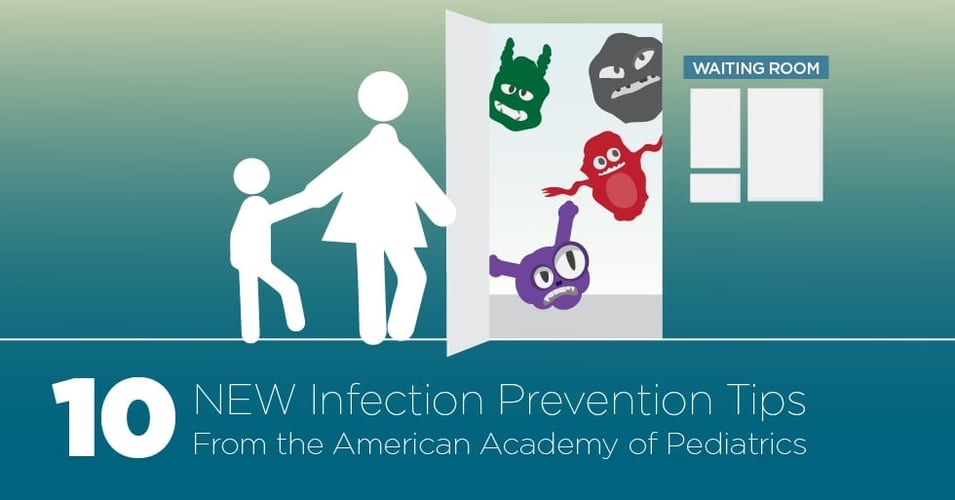National Pet Day: Pets and Pathogens

April 11th is National Pet Day! Let's take a moment to focus on the intersection between infection and household pets. There are many sides to this issue: The health of the pet owners, the health of the pets, and the overall household environment. Today we will explore some important information and tips to help everyone stay safe and healthy.
Although rare, infections that affect household pets can get spread to humans. While often not as severe in a human host, these infections are caused by a variety of pathogens including bacteria, viruses, fungi, and parasites. The pathogens to look out for vary by species, but there are a number that seem to be a universal threat such as Salmonella and Campylobacter. See the chart below for a species-by-species guide.
![]()
How To Minimize Risk of Transmission
Overall, maintaining good hygiene is the primary way to minimize the risk of transmission of pathogens from household pets to humans. Washing your hands, wiping down surfaces, and keeping pet areas clean are vital to reducing the pathogen load, also called the bioburden, in your home environment. Here are some basic guidelines:
-
Talk to your physician and your veterinarian.
If anyone in your home is immunocompromised, or if your household includes an infant or an elderly person, make sure you tell your doctor you have a pet. If your pet is sick, pay just as close attention to your vet's instructions. For example, animals on certain steroids are more susceptible to infections and should avoid pet gatherings.
-
Avoid contact with poo.
Yes, that sounds pretty simple. But this means taking some steps that might be overlooked while handling waste. Remember, all animal waste is full of bacteria and, potentially, other pathogens. Wear gloves when cleaning out a birdcage or tank. Make sure you immediately clean a dog who has been rooting or rolling in waste. Wash pet equipment (tanks, cages, hoses, etc.) that comes into contact with waste outside your home and never in the kitchen sink. (Bleach the sink afterwards if it's an absolute must.)
-
Avoid contact with dirty water.
This goes for you and your pet. You should be very careful when cleaning out water dishes and tanks, as many pathogens can live and thrive in water. When it comes to your pets, don't let them drink standing water and make sure any water they swim in is either natural, moving water (river, lake, etc.) or treated pool water. Water in tanks can also become contaminated, so don't keep fish, amphibian, or reptile tanks in the kitchen. And as always, wash your hands with warm, soapy water after cleaning up after (or playing with) your pet.
-
First Aid is for humans and pets.
If your pet gets a cut or a sore, treat the wound as you would your own: First wash your hands, then wash the wound out immediately and apply an ointment recommended by your vet. Monitor the wound and follow your vet's instructions. If your pet is ill, or if you handle a sick animal, change your clothes and wash your hands right away.
-
Animals have a microbiome, too.
Pets, just like wild animals and just like humans, are covered in helpful and neutral bacteria. But you still want this bacteria to stay pretty much on your pet and not move over to you. So don't let your dog or cat lick your face or any unbroken skin, as their mouth bacteria will transfer to you. Wash your hands immediately after handling amphibians and reptiles, as they often carry bacteria that causes them no harm but could lead to more unpleasant reactions in you. Keep your pet's habitat the right temperature, humidity level and proper amount of ventilation in order to maintain the right balance in their microbiome.
Following these and any guidelines from your physician and veterinarian should keep everyone safe and healthy. Ignoring these guidelines can be a rude reminder that bacteria are everywhere. In 2017, over 900 people got Salmonella poisoning from their backyard chickens. But washing your hands, not kissing your pets, and keeping your environment clean will keep everyone, pets and their adoring humans, happy.
Editor's Note: This post was originally published in April 2018 and has been updated for freshness, accuracy and comprehensiveness.
![EOScu Logo - Dark - Outlined [07182023]-01](https://blog.eoscu.com/hubfs/Eoscu_June2024/Images/EOScu%20Logo%20-%20Dark%20-%20Outlined%20%5B07182023%5D-01.svg)

![[infographic] Pets and Pathogens Download and share!](https://no-cache.hubspot.com/cta/default/216314/interactive-181035238274.png)



